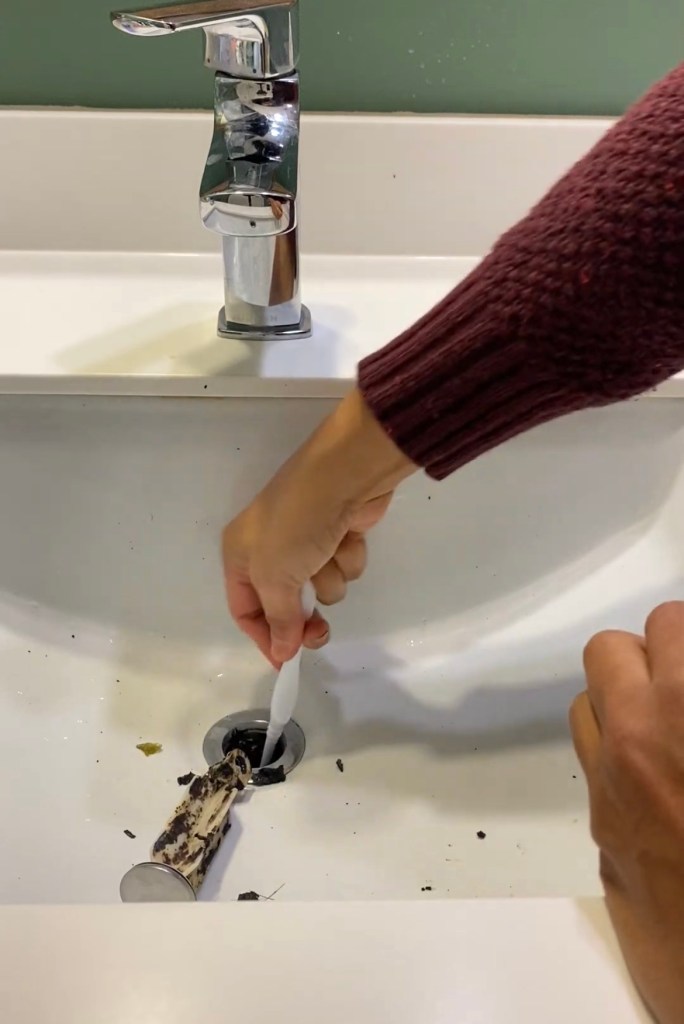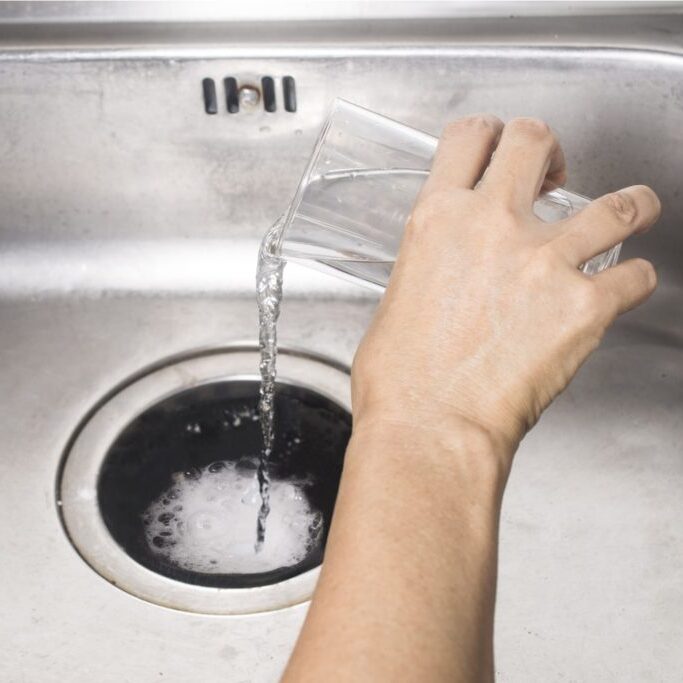Detailed Guide To Fixing A Slow-Draining Sink
Detailed Guide To Fixing A Slow-Draining Sink
Blog Article
This article underneath on the subject of Solved! How to Fix a Slow Sink Drain is immensely fascinating. You should take a look.

Intro
We've all existed: You're cleaning your teeth or cleaning your hands, and you notice the water merging in the sink. As opposed to promptly swirling down the tubes, it sticks around, transforming your once-refreshing early morning routine right into a mini overload scene. A slow-draining sink isn't simply annoying; it's commonly an indicator of larger pipes concerns prowling under the surface. Fortunately is that many slow-draining sinks can be fixed with a little knowledge, a couple of standard devices, and some patience. Prepared to tackle this job head-on? Allow's roll up our sleeves and dive right in.
Recognizing the Sources Of a Slow-Draining Sink
Before you begin poking around in your pipes, it aids to recognize what may be creating the downturn. Understanding the source makes it much easier to pick the right fix.
Devices and Materials You'll Require
The right devices make all the difference. Luckily, you will not need a completely stocked plumbing technician's van to finish the job.
Step-by-Step Guide to Dealing With a Slow-Draining Sink
Now, let's get involved in the nitty-gritty. This step-by-step procedure will certainly assist you through straightforward techniques to recover your sink's water drainage.
Action 1: Remove and Clean the Stopper
Often, the stopper (that small plug you push down to obstruct water) is the very first offender. Remove it meticulously and wipe any kind of hair or crud caught around its base. Wash it thoroughly before placing it back in place.
Action 2: Utilize a Plunger to Remove Debris
Got that bettor ready? Position it over the drainpipe and offer it a couple of firm pumps. The concept is to create suction that can loosen any kind of blockage. If you see littles particles drifting up, you get on the best track.
Action 3: Try a Drainpipe Serpent or Cord Hanger
If the plunger doesn't work, it's time to draw out the drain serpent. Delicately feed it right into the drainpipe and spin as you go. You could feel some resistance-- that's most likely the blockage. Maintain twisting and pulling till you remove the blockage. If you do not have a drainpipe snake, an aligned cord wall mount can work in a pinch.
Tip 4: Apply a Do It Yourself Drain Cleaner
An all-natural cleaner made from baking soft drink and vinegar can break down residual crud. Pour half a mug of cooking soft drink into the drain, followed by half a mug of vinegar. Let it fizz for about 15 minutes, then flush with hot water. This chemical reaction frequently does marvels for small clogs.
Step 5: Reassemble and Check the Sink
Placed whatever back together and run the tap. Does the water currently swirl down the tubes at a reputable speed? If yes, offer yourself a pat on the back. If not, don't anguish-- there are still a few more dress up your sleeve.
Necessary Tools for DIY Services
A bettor is your go-to starting point. A tiny, sink-sized bettor develops suction that can dislodge minor blockages. For even more persistent clogs, a drain snake (often called a plumber's auger) functions marvels. A set of gloves, a flashlight, and perhaps a pair of protective goggles are likewise handy.
Suggested Cleaning Solutions
Mild dish soap and hot water can aid break down oily build-up. A combination of cooking soft drink and vinegar is a reliable natural remedy, and enzymatic cleansers provide an even more environment-friendly method. Maintain chemical drain cleaners as a last resource, as they can be severe on your pipelines.
Typical Offenders Behind Slow Water Drainage
So, what's blocking things up? Typically, it's a combination of day-to-day particles-- assume hair, soap scum, tooth paste residue, and remaining food particles. With time, these tiny bits build up and hold on to the pipeline wall surfaces, slowly narrowing the flow and making it harder for water to pass through. In some cases, mineral deposits from tough water can also contribute to the substance, developing the perfect storm for stubborn obstructions.
When is it Time to Act?
If you observe the water draining pipes slower than normal, it's a great concept to intervene sooner rather than later. Waiting as well long could lead to complete clogs, unpleasant smells, or even pipe damage. If the water takes more than a couple of secs to remove after turning off the tap, consider it a red flag and prepare to place on your do it yourself hat.
Safety First: Precautions and Prep work
Prior to you launch into unclogging setting, consider safety. You're managing possibly dirty water and particles, so slip on a pair of handwear covers. If you're using chemical cleansers, guarantee the area is well-ventilated and comply with the directions on the tag.
Protective Gear and Work Area Arrangement
Lay down some old towels or cloths around the sink area to catch splashes. Clear away any kind of things that may get in your method, like soap dispensers or tooth brush owners. Ensure you have great illumination-- order a flashlight if required.
Alternate Methods for Stubborn Clogs
Not all clogs are produced equivalent. If your sink still rejects to coordinate, consider these alternate remedies.
Sodium Bicarbonate and Vinegar Technique
We already discussed this, yet it deserves noting again. This gentle, environment-friendly technique is safer than chemical cleaners and often quite reliable.
Chemical Drainpipe Cleansers
Enzyme-based cleansers make use of natural bacteria to digest organic matter. They're an exceptional option if you're looking to prevent severe chemicals. Just bear in mind, they may take a bit longer to work their magic.
Chemical Drain Cleaning Company: Benefits And Drawbacks
Chemical cleaners can blast through difficult clogs quickly, but they're not without downsides. They can produce heat and fumes, damages pipes if made use of excessively, and present ecological risks. Use them moderately, and always follow the instructions meticulously.
Safety Nets to Keep Your Sink Flowing
Prevention is the best remedy. By taking on a few simple routines, you can maintain your sink from decreasing to begin with.
Regular Cleaning Up Habits
Clean down the sink basin and component area consistently. Get rid of hair or food particles prior to they have a possibility to wash down the drainpipe.
Preventing Dangerous Materials Down the Drain
Reconsider prior to discarding coffee grounds, grease, or fibrous veggie scraps down the sink. These culprits hold on to pipe wall surfaces, developing clogs with time.
Regular Upkeep Checks
Arrange a fast month-to-month assessment. Run hot water with the sink for a couple of minutes, paying attention to the circulation. If it seems slow, act quickly before it ends up being a full-blown blockage.
When to Call a Professional Plumbing Professional
Occasionally, regardless of exactly how tough you attempt, that clog just won't budge. That's when it's time to generate the pros.
Signs That Show a More Major Problem
If your sink drains pipes slowly in spite of numerous efforts, or if you observe water backing up in other fixtures (like your shower or bathroom), you might have an extra serious plumbing issue lurking deeper in the system.
Balancing Do It Yourself Efforts with Expert Assistance
While DIY can save you money and supply a sense of success, there's no pity in calling a professional. A professional plumbing professional can analyze your whole pipes configuration, guaranteeing there's no underlying damage or lasting trouble that can cost you more in the future.
Comparing Costs and Long-Term Solutions
Before deciding, consider the big picture. An economical, quick fix might fix the trouble momentarily, yet investing in an extra irreversible option could save you cash and stress over time.
Considering the Expenditures of Do It Yourself vs. Professional Repairs
DIY solutions often set you back little more than the rate of a plunger or a bottle of cooking soda. Professional solutions, on the other hand, featured a price tag however might prevent repeated concerns and pricey repair work later.
Purchasing High Quality Fixtures and Upgrades
If your sink's layout contributes to regular blockages, it might be worth upgrading to higher-quality components or changing the plumbing layout. Consider this an investment in your home's capability and convenience.
Final thought
A slow-draining sink can feel like a small irritation, but it's usually a sign that your plumbing requires a little tender loving care. By understanding the root causes, utilizing the right tools and strategies, and dedicating to basic preventive measures, you can keep your sink streaming freely. And when all else stops working, never wait to call a professional-- your home's pipes deserves the financial investment in treatment and maintenance.
Three Common Ways to Fix a Slow Drain
Baking Soda Method
Boil a full pot of water. Measure out cup of baking soda and pour it down the drain. Then take cup of the magical cleansing substance known as white vinegar and drop that down there too. Allow the mixture to fizz in the drain for five minutes as the vinegar and baking soda combine. Now dump in that whole pot of boiling water. This combination of cleaning substances should clear out anything that is causing your sink to drain slowly. If it doesn t...
Zip-It
If the baking soda method doesn t clear out your drain, it may be because a significant amount of hair and/or other debris has collected there and you need to remove it. Purchase a Zip-It tool at any home improvement or hardware store and insert it into your drain. It will catch any collected hair or debris that s blocking the flow of water. Pull it out. If it s got a big clump of hair, etc. on the end, you ve probably got your culprit.
Drain Cleaner
If these methods don t work, there is the standard drain cleaner that you can also buy in a hardware store or even your local grocery store. It s better if you can use a household solution, but these drain cleaners often work in a pinch. They re very simple to use. You generally just dump them in your drain and wait. If even this method is not effective, it may be time to call the plumber.
https://www.mrrooter.com/oneida/about-us/blog/2017/july/three-common-ways-to-fix-a-slow-drain/

I stumbled upon that review on Solved! How to Fix a Slow Sink Drain when browsing on the search engines. Do you know about somebody who is truly interested in the subject? Be sure share it. Thanks for taking the time to read it.
Click For More Information Report this page